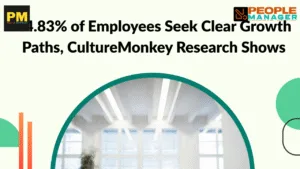The Hidden Costs of Toxic Handling: Navigating Emotional Landscapes in the Workplace
Toxic handling, the practice of absorbing the negative energy of toxic colleagues, is a common but often overlooked phenomenon in workplaces. While these individuals may be seen as unsung heroes, the emotional toll can be significant.

In the bustling corridors of every organization, there exist unsung heroes—individuals who quietly absorb the emotional turmoil of their colleagues, ensuring that the wheels of productivity keep turning. These silent mediators, known as “toxic handlers,” play a critical role in diffusing tensions and maintaining harmony. Yet, beneath their selfless efforts lies a hidden cost—one that affects not only their own well-being but also the entire workplace ecosystem.
The Role of Toxic Handlers
Driven by empathy and a sense of duty, toxic handlers voluntarily shoulder the emotional burdens of their peers. They absorb negativity, frustrations, and the toxic energy that permeates office spaces. Ravi Kumar, Chief People Officer at Page Industries, aptly describes them as “typically highly-empathetic individuals” who understand the impact of toxicity on their colleagues. However, this noble role comes at a steep personal price.
The Emotional Toll
Toxic handlers navigate their colleagues’ emotional landscapes, often experiencing heightened stress, anxiety, and even burnout. Their mental and physical health deteriorates as they absorb the emotional weight of others. The toll is substantial, impacting their ability to perform effectively.
The Organizational Risks
Beyond personal stress, toxic handlers face additional risks within the organization. When revenue becomes the sole focus, and underlying issues of poor people management remain unresolved, these heroes may feel like they’re fighting a losing battle. Manish Majumdar, Head of HR at Centum Electronics, highlights this disconnect between efforts and priorities. The consequences? Frustration and burnout.
Apply for SHRM Leader Certification September 2024 Batches – open for registration
Ripple Effects
The over-reliance on toxic handlers reverberates throughout the workplace. Deepti Mehta, Chief HR Officer at Interface Microsystems, warns that the stress they absorb doesn’t vanish—it spreads. Toxicity infiltrates the air, stifling productivity and innovation.
Extreme Conditions
Mehta recalls a case where cross-functional teams faced extreme pressure, leading the company to create a war room. Employees—especially toxic handlers—worked tirelessly to meet urgent deadlines. The stark conditions highlighted the strain under which they operated. Without proper support, burnout and disillusionment loomed.
Supporting Toxic Handlers
Organizations must recognize the pivotal role of toxic handlers and provide essential support. Equipping them with coaching, listening skills, and effective communication tools is crucial. Guiding principles—whether revenue, employee welfare, or a positive work environment—should drive organizational decisions. Regular check-ins, mental health services, and stress-management training are vital. Specialized roles, like “listening officers,” can distribute the burden.
Conclusion
The role of a toxic handler remains one of the most challenging and underappreciated in the workplace. By acknowledging their importance and offering unwavering support, organizations can create a healthier, more positive work environment for all.
Stay tuned, to PropleManager.co.in for further updates on the evolving workplace paradigm.








